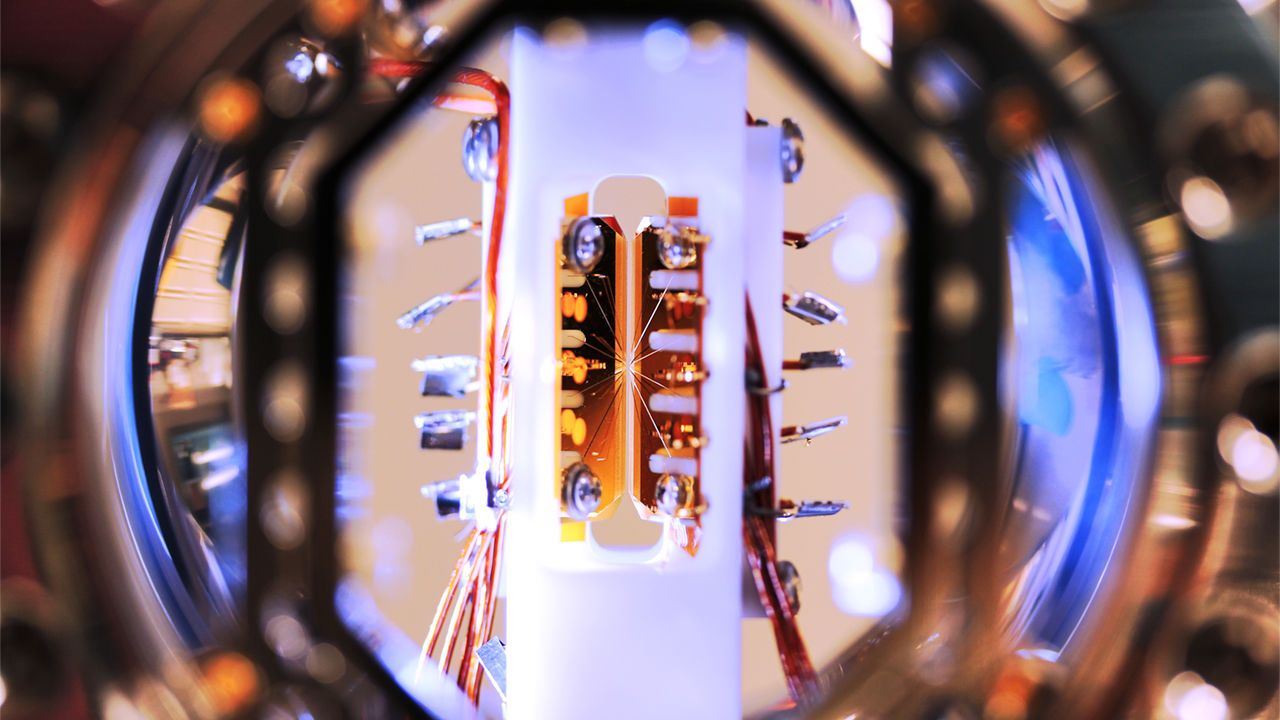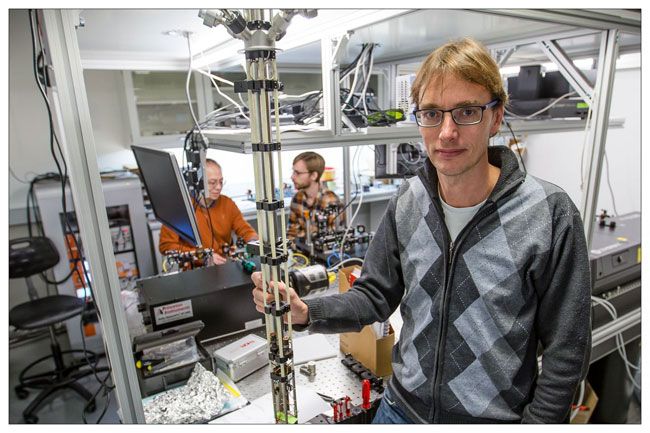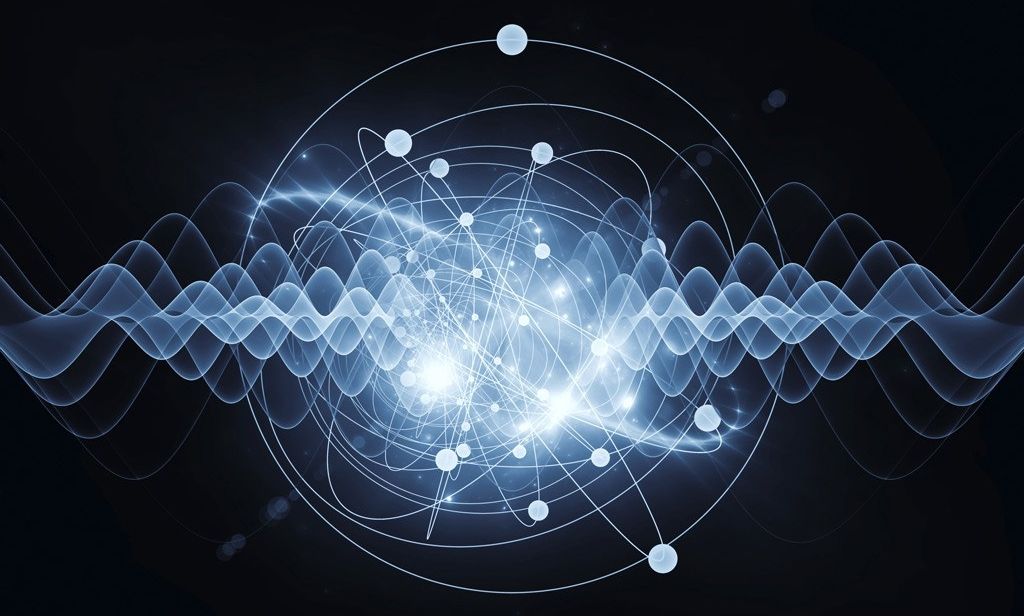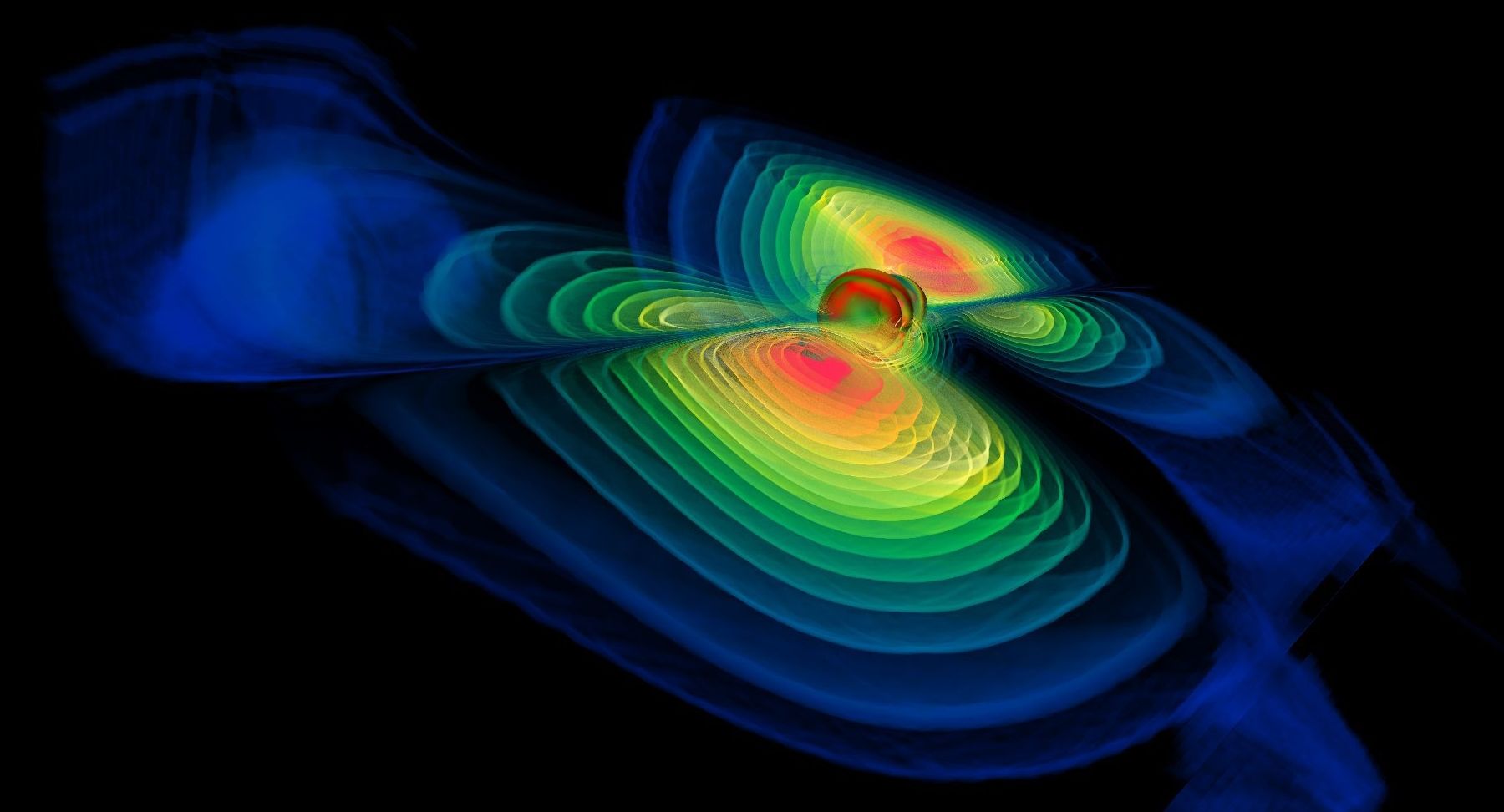Scientists theorised, disproved, revamped and finally created a bizarre new form of matter in just five years.
Pres. Trump Chooses Science Advisor
Posted in chemistry, climatology, military, physics, science, space
Congrats Dr. Happer.
I’ve been waiting to find out who will be Pres. Trump’s science adviser. It appears to be physicist Dr. William Happer, a physicist currently teaching at Princeont University, and former Director of the U.S. Department of Energy’s Office of Science from 1991–1993. He’s no slouch as a scientist. His work for the Air Force on the sodium guidestar laser platform for the military’s missile defense program provided information on the tropopause layer in the upper atmosphere, which is where atmospheric wave fronts distort both starlight and laser emissions, and where heat either begins to leak into space or does not, depending on how much and what kind of gas is blocking heat radiation.
The tropopause is the boundary between the troposphere, where we live and where weather takes place, and the stratosphere. The layers above that are the stratosphere, where stratocirrus clouds form as floating clouds of ice, the mesosphere, the thermosphere and the top, very thin layer, the exosphere. Beyond that is space.
Dr. Happer’s view of the whole climate thing clashes badly with the PC crowd’s notions about it, mostly because during the development of the sodium guidestar, he had to learn the physics and chemistry of the troposphere and the tropopause, and the layers above the troposphere.
If you’ve ever wondered how a vaccine given decades ago can still protect against infection, you have your plasma cells to thank. Plasma cells are long-lived B cells that reside in the bone marrow and churn out antibodies against previously encountered vaccines or pathogens.
While plasma cells are vital components of the immune system, they can also be a contributor to disease, as is the case in autoimmune diseases, such as lupus and rheumatoid arthritis, and in certain cancers, such as multiple myeloma.
Now, a group led by researchers at the University of Pennsylvania School of Veterinary Medicine, has come to a better understanding of how these cells are maintained. Using a specialized type of microscope that captures the movement and interaction of cells in living organisms, the scientists observed that, in the bone marrow, immune cells called regulatory T cells closely interact with plasma cells and support them. When the T cells aren’t there, plasma cells vanish.
Optical nano-antennas are ideal to enhance light-matter interactions at the nanometer scale. Yet in most designs, the region of maximum field localization and enhancement, the “hotspot”, is not readily accessible since it is buried into the nanostructure.
In a recent collaboration between EPFL in Lausanne, Fresnel Institute in Marseille and ICFO groups led by ICREA Professors at ICFO Maria Garcia-Parajo and Niek van Hulst, researchers present a new nanofabrication technique that applies planarization, etch back and template stripping to expose the excitation hotspot at the surface.
The large flat surface arrays of in-plane nano-antennas feature gaps as small as 10 nm with sharp edges, excellent reproducibility and full surface accessibility of the hotspot confined region. The novel fabrication approach drastically improves the optical performance of plasmonic nano-antennas to yield giant fluorescence enhancement factors, together with nanoscale detection volumes in the 20 zepto-liter range.
A quantum leap for computers
Posted in computing, quantum physics
More on the QC Blueprint which enables others to use as a reference when building a QC.
According to Prof Winfried Hensinger of the University of Sussex in the United Kingdom, he and his team have the first practical design for a quantum computer. Like millions of others, I have struggled to come to an understanding of quantum mechanics and how a quantum computer might work.
It would use qubits rather than standard on/off or 1 and 0 bits used in traditional computers. A qubit can have a state of anywhere between zero and one, including all the “states” in between. Theoretically, a quantum computer can perform a very large number of calculations simultaneously using the ideas of super positioning and quantum entanglement. The theory is that all the necessary calculations are carried out at virtually the same time, e.g. working out all the factors of a very large number. This kind of problem can take a regular computer quite a while.
Prof Hensinger claims he has produced a “how to build it” template, published in Science Advances journal, with a scalable construction plan which you can read here: www.advances.sciencemag.org/content/3/2/e1601540.full. It involves ions, long wave radiation, overlapping fields, vacuum chambers and other pieces of exacting technology. To be honest, I have never quite understood how you program in the questions and read the answers from quantum computers.
Sharing in case folks would like to listen in.
Microsoft’s Station Q was founded in 2006. The focus of the team has always been topological quantum computing. By taking a full systems architecture approach, we have reached the point where we now able to start engineering a scalable quantum computer. The goal is to be able to solve major problems in areas of interest (e.g., Chemistry, Materials and Machine Learning). This talk will focus on the types of applications that we will be trying to solve as well as the unique approach to quantum computation that we’ve developed. For reference, see:
Current Approach: https://arxiv.org/abs/1610.05289 Chemistry Application: https://arxiv.org/abs/1605.03590 Other papers: https://arxiv.org/find/all/1/all:+wecker_d/0/1/0/all/0/1
I never doubt the theory.
We owe a lot to Einstein, and this week physicists have confirmed another of his theories by unraveling and proving that quantum entanglement does in fact exist. Under the standard quantum theory, nothing has a definitive state until it’s measured, and when two particles interact they become entangled. Being entangled means no longer do the particles have their probabilities but one that includes both particles together. Even though two photons become entangled, they can still travel light years apart from each other, but they will always remain linked.
It was a great moment for physicists and scientists around the world in 2016 when one of the greatest ever scientific discoveries was announced. Although technically the first gravitational waves were detected in 2015, it wasn’t until further detections were made in 2016 that scientists finally conceded they did exist and that Albert Einstein’s theory of relativity could finally be proved. Following on from that, scientists also discovered that as well as a great detector LIGO is the best producer of gravitational waves.







